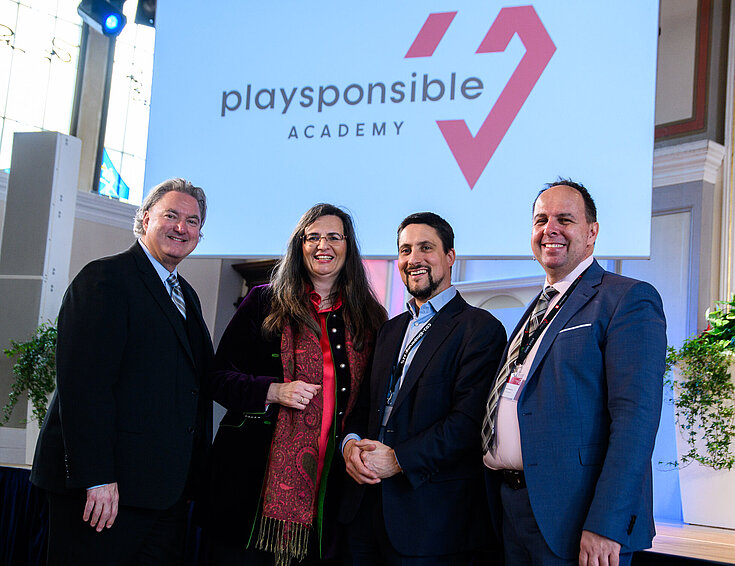
“We don’t want to make money off people who have problems with gambling-related issues. We have a certain responsibility that we live by and that we take very seriously,” CEO Erwin van Lambaart stated unequivocally at the beginning of his welcome speech at this year’s Playsponsible Academy of the Casinos and Lotteries Group. He went on to explain: “For 99 percent of our guests and gaming participants, we’re an entertainment company. We want to offer our guests some pleasure and a nice evening and, of course, a chance to win some money.”
Well over 200 employees as well as representatives of consulting centres, regulatory authorities and the owners attended the new, albeit traditional Playsponsible Academy at Casino Baden on this Tuesday. The reason we describe this venue as ‘new’ is because the event frankly hasn’t existed in this form before; the reason we refer to it as ‘traditional’ is because it was built on top of the Responsible Gaming Academy, which was in operation until 2019, and expanded to include important areas such as Corporate Social Responsibility (CSR) and above all Environmental Social Governance (ESG). ‘Playsponsible’ is a term of art that combines the two major themes of the Group’s areas of operation: gaming and responsibility, which go beyond the traditional understanding of responsible gaming. In future, Playsponsible will be a platform on which all topics that include taking responsibility will be given a stage – across all divisions. All of this is intended to effectively underline the strength of the Group in this highly topical area.
The Academy’s programme was designed to be correspondingly diverse, with Arno Nagelschmied, Managing Director Responsible Gaming in the Group, focusing on various aspects of responsibility: “The topics ranged from brain research to the status quo and future challenges to international best practices regarding responsible gaming as well as parallels from similar industries when it comes to understanding and dealing with appropriate levels of responsibility.”
Dr. Kurosch Yazdi-Zorn, head of the Department of Psychiatry at Kepler University Hospital in Linz, used functional magnetic resonance images to provide insights into neurobiological processes that take place in the brains of healthy as well as pathological players, which revealed remarkable differences in winning experiences or viewing images of gaming machines.
Philipp Gaggl, BA, ESG Director at PwC Austria, explained the evolution from philanthropy to CSR to ESG, and he pointed out that missing or deficient ESG reporting requirements can stand in the way of management members’ indemnity against liabilities after discharge. Unlike CSR, ESG is no longer based on a voluntary mindset. There’s a need for a structured implementation of ESG objectives and – as a result – anchoring ESG in the Group’s strategic goals.
A highly informative and interesting exchange on the topic of the risk potential of the offerings as well as the acting responsibly was held with Dr. Gabriela-Maria Straka, Director of Corporate Affairs & ESG Sustainability of Brau Union Österreich.
Dr. Oliver Scheibenbogen from the Institute for Social Aesthetics and Mental Health, Sigmund Freud Private University / Anton Proksch Institute, explained this interdependence between different types of addiction and the fact that pathological gambling addicts suffer from other addictions as well. With regard to this particular issue, a differentiated view of the various products is imperative, given the vastly heterogeneous range.
Laura Da Silva Gomes, Director of Silverfish CSR Ltd., maintained that sustainability and ESG are not about what you do with the money you made, but how you make the money. Any potentially harmful effects must be avoided as far as possible in the course of business operations. She also demonstrated best practice examples regarding how training with regard to responsible behaviour or a potential change towards such behaviour can be made.